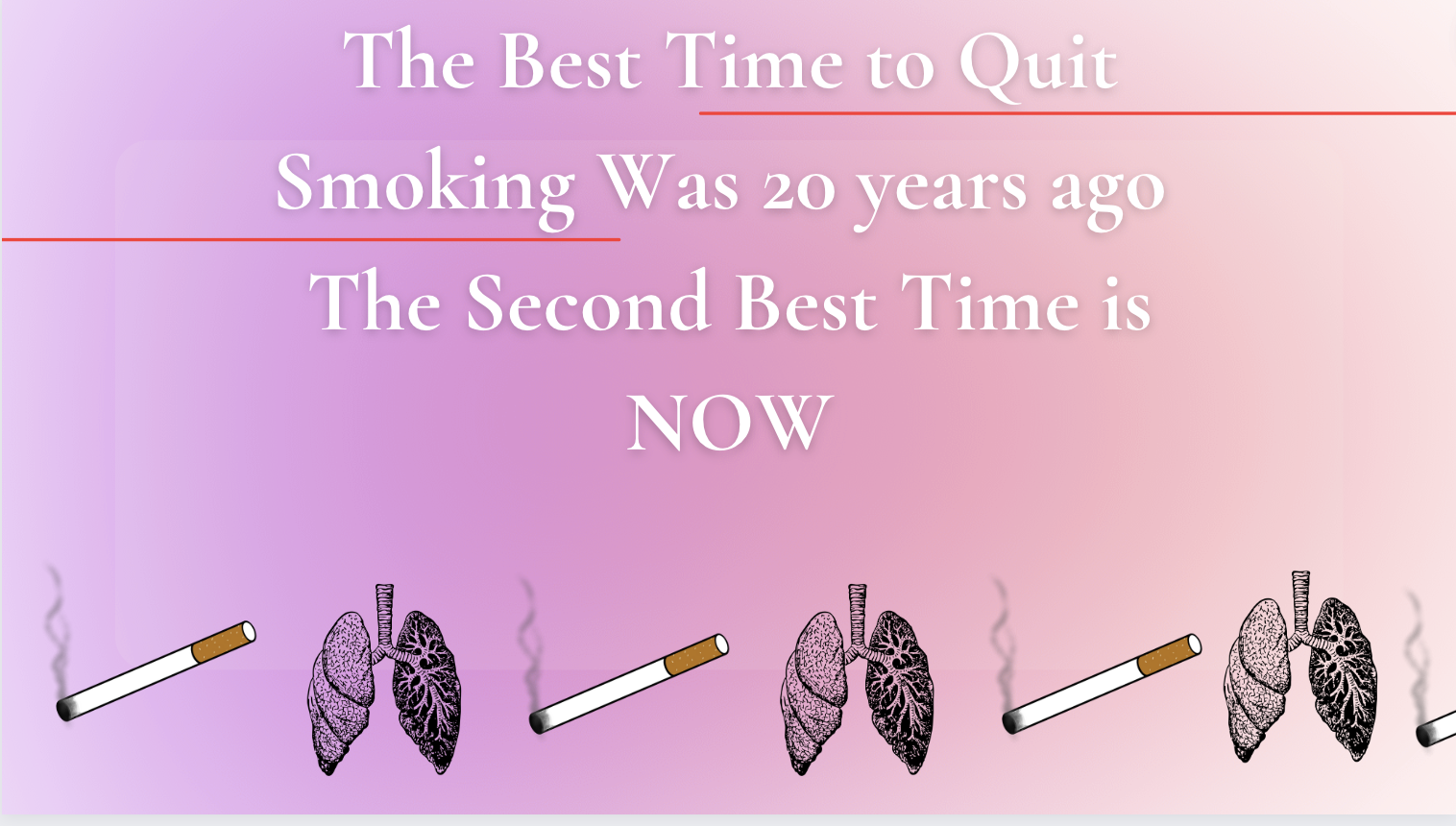
Smoking is a leading cause of preventable deaths in the United States. The key word here being “preventable”. Smoking is completely preventable. As impossible as it might seem to quit smoking right now, there is no better time than now and to utilize the tools that are at your fingertips.
The saying goes, "The best time to plant a tree was 20 years ago. The second best time is now." This quote emphasizes the importance of taking action towards a goal, even if it may seem like it's too late or the opportunity has passed.

While it would have been ideal to plant a tree 20 years ago, the second best option is to start planting today and not delay any further. This quote can be applied to many aspects of life, including quitting smoking.
While it's never too late to quit smoking and experience the benefits of a smoke-free life, it's important to take action and start the process today.
Actionable Initiatives That Has Decreased the Amount of Smokers in the US Every Year

For decades, the government and medical communities have been working tirelessly to decrease the number of smokers in the country. Notably, the efforts have been paying off!
According to the Centers for Disease Control and Prevention (CDC), the percentage of adult smokers in the United States has dropped from 25% in 1997 to 14% in 2019. This is a significant decline, and it is great news for public health.
There have been several initiatives in recent years that have contributed to the decrease in the number of smokers in the United States.
Here are some specific examples:
Increased taxes on cigarettes: Higher taxes on cigarettes make them less affordable, which can discourage people from smoking. According to the Campaign for Tobacco-Free Kids, there have been over 100 state and local tax increases on cigarettes since 2000.

Smoke-free laws: Smoke-free laws prohibit smoking in certain public places, such as workplaces, restaurants, and bars. These laws not only protect non-smokers from secondhand smoke but also make it more difficult for smokers to find places to smoke.
Anti-smoking campaigns: The government and various organizations have launched several anti-smoking campaigns to raise awareness about the dangers of smoking. These campaigns aim to educate people about the health risks of smoking and encourage them to quit.

Regulation of tobacco products: The Food and Drug Administration (FDA) regulates tobacco products to ensure their safety and efficacy. In 2009, the FDA was given the authority to regulate tobacco products, which has led to stricter regulations on cigarette packaging, advertising, and marketing.
Availability of smoking cessation resources: There are many resources available to help people quit smoking, including nicotine replacement therapy, prescription medications, support groups, and quit-lines. These resources have become more widely available in recent years, making it easier for people to quit smoking.
Social pressure: There has been a cultural shift in recent years towards a healthier lifestyle, which has made smoking less socially acceptable. This social pressure can discourage people from smoking or encourage them to quit.

All of these initiatives have contributed to the decrease in the number of smokers in the United States. While there is still work to be done, these efforts have made a significant impact on public health. It is important to continue to support these initiatives and promote smoking cessation to further decrease the number of smokers in the United States.
Why Do People with COPD Need to Quit Smoking?
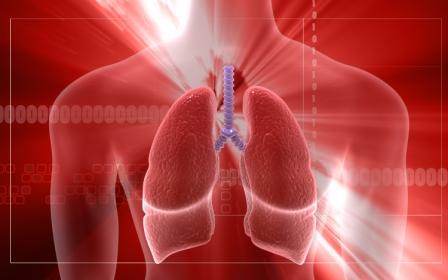
Quitting smoking is one of the best things a person can do for their health. It can help lower the risk of developing lung cancer, heart disease, and stroke. But it is especially important for those who have been diagnosed with chronic obstructive pulmonary disease (COPD).
COPD is a chronic lung disease that makes it difficult to breathe. It includes conditions such as emphysema and chronic bronchitis. The primary cause of COPD is smoking. When a person smokes, the toxins in the cigarette smoke damage the air sacs in the lungs. This damage can lead to inflammation, scarring, and narrowing of the airways, making it harder to breathe.
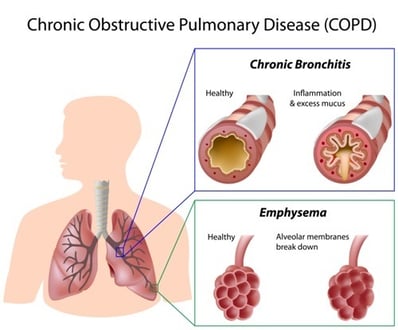
If you have been diagnosed with COPD and are still smoking, quitting is essential. It may be challenging, but it is worth it. Within just a few weeks of quitting smoking, you will notice improvements in your lung function, and you will have a lower risk of exacerbations and hospitalizations.
Additionally, quitting smoking can help slow the progression of COPD. While there is no cure for COPD, quitting smoking can help prevent further damage to the lungs, which can slow the progression of the disease.
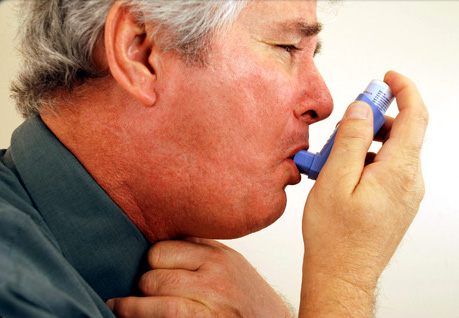
There are many resources available to help people quit smoking, such as nicotine replacement therapy, prescription medications, and support groups.
Remember, it is never too late for people with COPD to quit smoking. Even if you have smoked for many years, quitting can still provide significant benefits to your health.
Tips and Tricks That Will Help You Quit Smoking for Good

If you have COPD and are trying to quit smoking, here are some tips and tricks to help you along the way!
We added some first-hand accounts that highlight the benefits of quitting smoking, such as improved lung function, increased energy, and a decreased risk of disease progression. While quitting smoking can be difficult, these stories show that it is possible with the help of resources such as nicotine replacement therapy, prescription medication, and support groups.
Find a support system: Quitting smoking can be difficult, but having a support system can make a significant difference. Consider joining a support group or seeking support from family and friends.
"I had been smoking for over 20 years and tried to quit many times without success. But after a health scare, I knew I had to quit for good. I started using nicotine replacement therapy and joined a support group, and with their help, I was able to quit smoking. It's been over a year now, and I feel so much better. My lungs are clearer, I have more energy, and I don't feel like I'm constantly craving a cigarette." - Sarah, 42
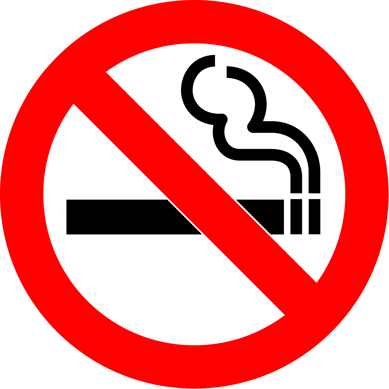
Use nicotine replacement therapy: Nicotine replacement therapy (NRT) can help reduce the symptoms of nicotine withdrawal. NRT includes products such as nicotine gum, patches, lozenges, and inhalers.

"I was diagnosed with COPD a few years ago and knew that I needed to quit smoking if I wanted to slow the progression of the disease. It was hard, but I started using a combination of nicotine replacement therapy and prescription medication, and it made a huge difference. Now, I can breathe easier, and I don't have to worry about my COPD getting worse." - Mike, 58
Consider prescription medications: There are several prescription medications that can help you quit smoking. Speak with your healthcare provider to determine which medication is right for you.
Identify triggers: Identify the situations that trigger your urge to smoke, such as drinking alcohol or being around other smokers. Once you identify these triggers, you can work to avoid them or find alternative coping mechanisms.
Make lifestyle changes: Making lifestyle changes such as increasing physical activity, improving your diet, and reducing stress can help support your efforts to quit smoking.

It is also important to note that using portable oxygen concentrators, such as the ARYA Airvtio Max from LPT Medical, can be a safe option for oxygen users who are trying to quit smoking. These devices allow you to receive the oxygen you need while minimizing the risk of fire or explosion from smoking near oxygen tanks.

The ARYA Airvtio Max is a lightweight, portable oxygen concentrator that can provide up to 10 hours of oxygen on a single charge. It is FAA-approved for air travel, making it a great option for those who want to continue traveling while using oxygen.
Using a portable oxygen concentrator can help ease the transition to a smoke-free lifestyle. It can also provide peace of mind for those who are concerned about the potential risks of smoking near oxygen tanks.
The Positive Impacts Quitting Will Have on Your Day to Day Life

1. Improved lung function: Smoking damages the lungs, making it harder to breathe. Quitting smoking can help improve lung function and reduce symptoms like coughing, wheezing, and shortness of breath.
2. Better circulation: Smoking constricts blood vessels, which can reduce blood flow to various parts of the body. Quitting smoking can help improve circulation, which can lead to better overall health.
3. Improved sense of taste and smell: Smoking can dull the senses of taste and smell. Quitting smoking can help improve these senses, making food and other scents more enjoyable.
4. Improved appearance: Smoking can cause premature aging and contribute to wrinkles, yellowing of teeth, and other skin issues. Quitting smoking can help improve appearance and reduce these negative effects.
There are other less noticeable, but equally important impacts too.
1. Reduced risk of disease: Smoking is a major risk factor for many diseases, including cancer, heart disease, and respiratory disease. Quitting smoking can significantly reduce the risk of developing these diseases.
2. Improved mental health: Smoking has been linked to an increased risk of depression, anxiety, and other mental health issues. Quitting smoking can help improve mental health and reduce these risks.
3. Improved immune function: Smoking weakens the immune system, making it harder to fight off infections and illnesses. Quitting smoking can help improve immune function and reduce the risk of infections.
4. Improved quality of life: Smoking can negatively impact many aspects of life, including relationships, work, and overall quality of life. Quitting smoking can help improve these areas and lead to a happier, healthier life.
It's important to remember that the benefits of quitting smoking are not always immediately noticeable, but they can have a significant impact on overall health and wellbeing over time.
"Quitting smoking was the best decision I ever made. I had been smoking for 15 years and was starting to feel the effects on my health. I was tired all the time, and my cough was getting worse. But after quitting, I noticed a huge improvement in my health. I have more energy, my cough is gone, and I feel like I can finally breathe again." - John, 35
Conclusion

In conclusion, it is never too late for people with COPD to quit smoking. The declining number of smokers in the United States is great news for public health. It is a sign that the efforts to educate people about the dangers of smoking are working.
Quitting smoking can provide significant benefits to your health, even if you have smoked for many years. If you are trying to quit smoking, consider finding a support system, using nicotine replacement therapy or prescription medications, identifying triggers, and making lifestyle changes.
Additionally, using a portable oxygen concentrator such as the ARYA Airvtio Max can provide a safe option for oxygen users who are trying to quit smoking. Remember, quitting smoking is not easy, but it is worth it.
For those who have been diagnosed with COPD, quitting smoking is especially important. It can help improve lung function, prevent exacerbations and hospitalizations, and slow the progression of the disease.



